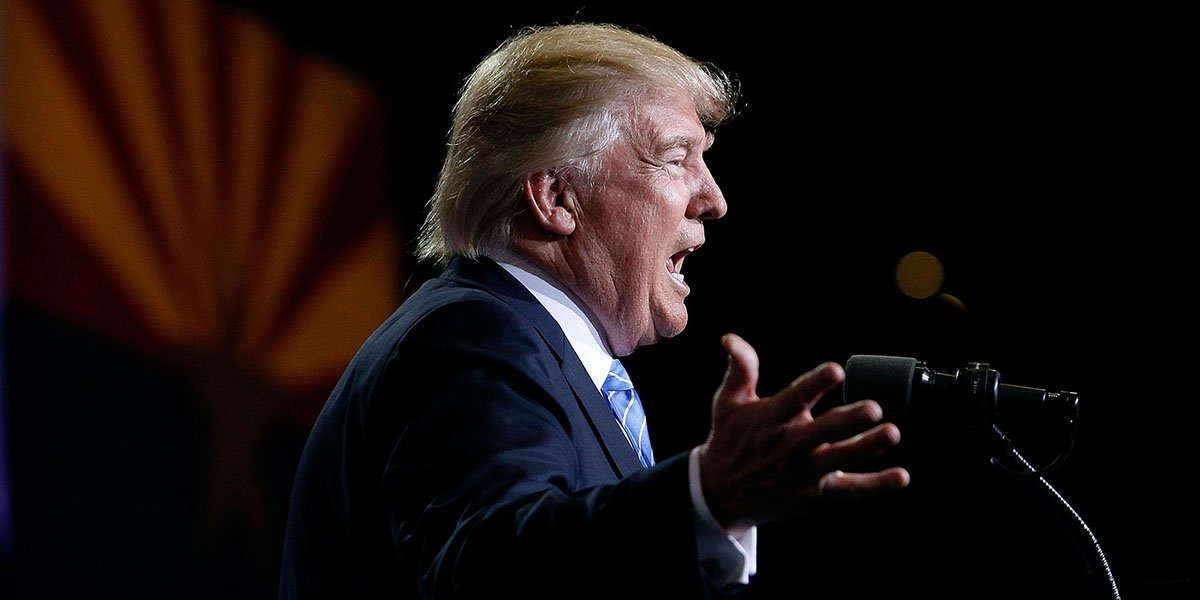 |
| Donald Trump |
President-elect Donald Trump said his support for the decades-old One-China policy will hinge on cutting a better deal on trade and that other nations, especially China, shouldn’t be deciding whom he talks to.
“I fully understand the One-China policy, but I don’t know why we have to be bound by a One-China policy unless we make a deal with China having to do with other things, including trade,” Trump said in interview with “Fox News Sunday.”
“I don’t want China dictating to me,” he added, echoing his comment a week ago on Twitter, days after he broke with decades of protocol and spoke by phone with Taiwan’s president in a move that prompted a Chinese protest. Last week, Trump told a crowd in Iowa that China would soon have to “play by the rules.”
The Republican threatened during his campaign to brand China a currency manipulator immediately upon taking office, and to slap 45 percent tariffs on its exports to the U.S.
The U.S. is being “being hurt very badly by China with devaluation, with taxing us heavy at the borders when we don’t tax them, with building a massive fortress in the middle of the South China Sea, which they shouldn’t be doing, and frankly with not helping us at all with North Korea,” he said in the Fox interview, which was taped on Saturday.
The comments come after Trump’s 10-minute phone call with Tsai Ing-wen in early December, the closest a leader of Taiwan has come to getting formal recognition from Washington since the U.S. established ties with the Communist government in Beijing almost four decades ago.
The One-China policy is an acknowledgment that Taiwan and China are part of the same China, even if they disagree on what that means. China regards it as a bedrock policy, not the bargaining chip that Trump suggested.
The Trump call, which helped Tsai draw global attention to the democratically-run nation’s increased isolation in the shadow of a rising China, may have been a first step to upending the balance, weeks before Trump takes office on Jan. 20.
Trump’s comments are significant because, while he suggests the U.S. wants to include the One-China policy as part of broader trade discussions, the government in Beijing considers the arrangement non-negotiable. In fact, Chinese leaders define Taiwan as a so-called core interest, with the view the island belongs to China and will never be independent.
‘Price Tag’
"It seems pretty clear that Trump wants to use the One-China policy as a bargaining chip -- the risk is real and present," said Wang Tao, head of China economic research at UBS AG in Hong Kong. "For China, there is no balancing of trade and Taiwan -- Taiwan is considered the utmost core interest of China, not for bargaining."
The Global Times, a party-run newspaper, said in an editorial on Monday the One-China policy “cannot be bought or sold.”
“It looks like Trump only knows about business and thinks everything can be assessed with a price tag, and as long as he’s powerful enough, he could use force to buy or sell,” the paper said. China should make Trump "hit some snags" to show him it’s not "easy to bully,” it said.
The policy was worked out in the 1970s as President Richard Nixon switched formal diplomatic recognition to Beijing from Taiwan’s Kuomintang government, which fled to the island during a civil war three decades earlier.
At the same time, China has been willing to allow Taiwan almost complete unofficial sovereignty. The U.S. has sold billions of dollars in weapons to the Taiwan government over the years, while China’s own trade with the island has risen steadily.
Ambivalence, Ignorance
“For over three decades, Washington’s interactions with Taiwan have been the most sensitive, contentious, and choreographed aspects of U.S.-China relations,” Derek Chollet, a senior adviser at the German Marshall Fund and former member of the Obama administration, said last week. “The fact this call happened and the way it was reported out either reflects ambivalence or ignorance about that history -- or maybe both.”
China may use the phone call as leverage in interactions with the U.S., he said.
“They may use this as an excuse to find some way to respond, to stick it to us,” Chollet said. “China unquestionably considers the years to come as a huge opportunity, when the U.S. will likely be embroiled in domestic crisis and pursuing policies that will leave it more isolated in the world, so this move, whether intended or not, gives them a grievance to pursue.”
While it emerged that former U.S. Senator Bob Dole, acting as a paid lobbyist for Taiwan’s government, connected Trump’s staff with Taiwanese officials in advance of the call, Trump defended his decision to speak with Tsai. He said he accepted the call, which was made by Tsai. Claims from his own advisers that he was considering the move for weeks were “all wrong,” he said.
“Why should some other nation be able to say I can’t take a call?” Trump said. “It actually would’ve been very disrespectful, to be honest with you, not taking it.”
Bloomberg
No comments:
Post a Comment